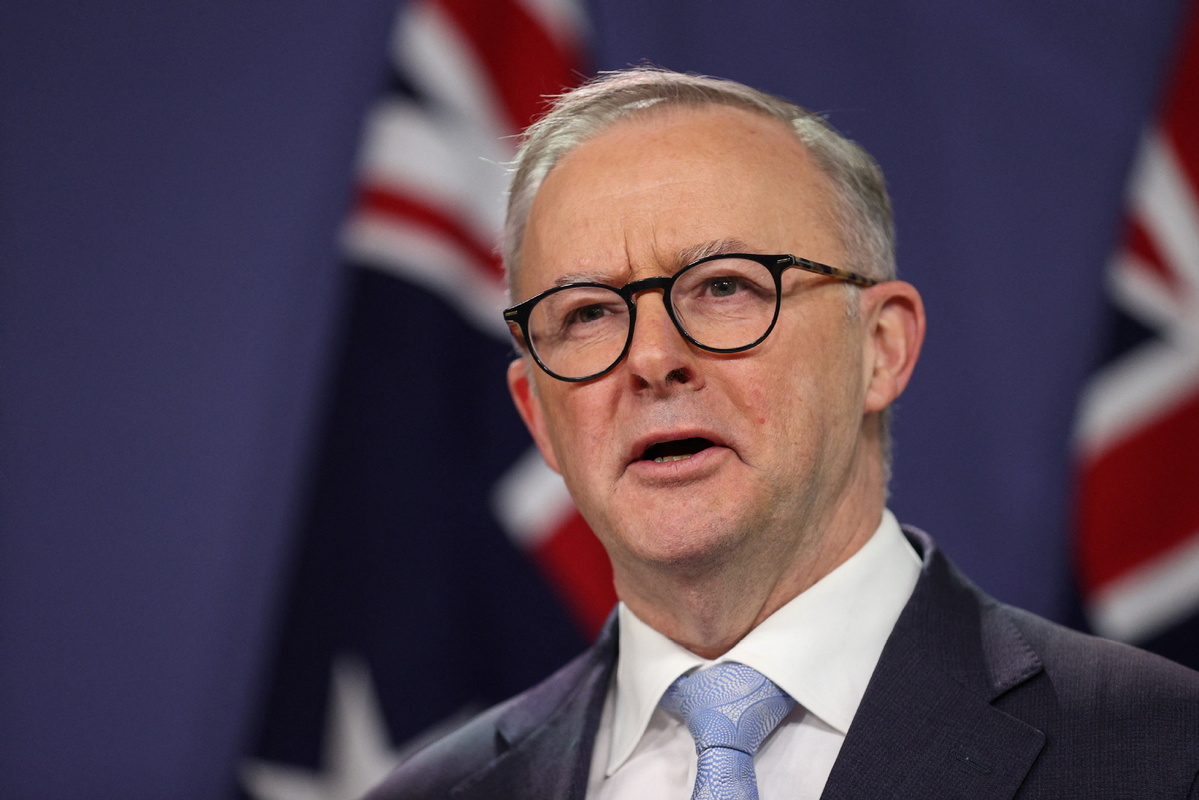Albanese must not be misled by alliance: China Daily editorial
chinadaily.com.cn | Updated: 2022-06-29 20:01

In an interview with the Australian Financial Review while en route to Spain to attend the NATO Summit, Australian Prime Minister Anthony Albanese revealed his lack of diplomatic nous and poor grasp of political realities.
Saying that the Russia-Ukraine conflict has been a "strategic failure" for Russia that has made it a "global pariah", he said that it was something about which China should take note. Stating that "attempts to impose change by force on a sovereign country meet resistance", he drew a parallel between Taiwan and Ukraine.
A Chinese Foreign Ministry spokesman gave him the requisite lesson, stating that a parallel cannot be drawn between Ukraine and the Chinese island as "Taiwan is not a sovereign country".
It is hard to believe that the new Australian leader can be so ill-informed as to not know China's stance on the Ukraine crisis, which it has clarified on multiple occasions, or that he can be so ignorant as not to understand the status of Taiwan.
The take-away from his words then is that while he might talk of wanting to improve his country's relations with China, he is either going to have to make dedicated efforts to better understand the issues that have led to bilateral ties deteriorating precipitously or be more diplomatically astute.
Unfortunately, the NATO Summit is not conducive to that — rather the opposite.
As its new mission guidelines make clear, the transatlantic club is keen to expand its sphere of influence to encompass the Asia-Pacific by portraying China as an adversarial straw-man.
Since Albanese took office, Beijing has displayed goodwill in the hope that Canberra will be willing to work with it to improve bilateral ties. But so far, Canberra has not reciprocated with a message expressing its willingness to resolve its differences with China and put bilateral ties back onto the right track.
From deliberately playing up and smearing China's normal security cooperation with the Solomon Islands to eagerly jumping on the US bandwagon drumming up support for its containment policy against China, the current Australian government has displayed no signs of changing the course set by its predecessor.
Last month, when Albanese's Labor Party came to power, there were high hopes in both countries that it offered the opportunity to reset Australia's ties with China. Those hopes are diminishing by the day, but there have been a few positives keeping the embers alive. Although Albanese has continued the hardline stance toward China adopted by his predecessor, defense chiefs from China and Australia met on the sidelines of the regional security forum in Singapore earlier this month, marking the first high-level bilateral contact between the two sides in several years.
On Wednesday, Canberra's new defense minister also appeared to tone down Australia's plan to acquire nuclear-powered submarines through AUKUS, a trilateral alliance Australia went into with the US and the United Kingdom, by 2030, describing the timetable as "optimistic in the extreme".
Albanese should heed the reasonable voices calling for improving ties with China rather than letting the US-led NATO Summit fill his head with nonsense.
























